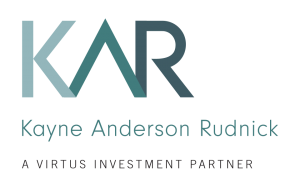KAR Small Cap Growth SMA
KAR Small Cap Growth SMA

Resources
Investment Objective
- To generate attractive risk-adjusted long-term returns by investing in the stocks of U.S. small-cap growth companies with durable competitive advantages, excellent management, lower financial risk, and strong growth trajectories
- To identify businesses that are differentiated by above-average returns on capital trading at attractive valuations
Investment Philosophy
We believe that purchasing high-quality businesses with competitive protections at attractive valuations will achieve excess returns over a complete market cycle.
Investment Partner
Kayne Anderson Rudnick Investment Management, LLC
Kayne Anderson Rudnick believes that superior risk-adjusted returns may be achieved through investment in high-quality companies with market dominance, excellent management, financial strength, and consistent growth, purchased at reasonable prices.
Learn more about Kayne Anderson Rudnick Investment Management, LLC
Investment Professionals

Todd Beiley, CFA
Head of Research, Portfolio Manager, and Senior Research Analyst
Industry start date: 1999
Start date as fund Portfolio Manager: 1998

Jon Christensen, CFA
Portfolio Manager and Senior Research Analyst
Industry start date: 1995
Start date as fund Portfolio Manager: 1998
